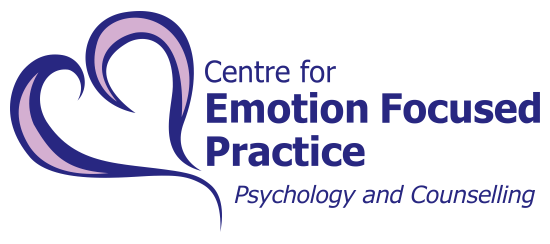What is psychotic depression?
What is depression?
Major Depressive Disorder is characterised by a persistent lowering of mood, which is also accompanied by a range of other physical and psychological symptoms that interfere with day to day functioning. It is diagnosed in Australia according to the Diagnostic and Statistical Manual (DSM-V) based on an individual having five or more of the following symptoms, present during the same two-week period and that represent a change from previous functioning:
- Feeling low for most of the day, nearly every day. This might feel like sadness, emptiness or hopelessness.
- Not being as interested in activities, or activities not being as pleasurable as they used to be.
- Having a change (whether up or down) in appetite and noticing a fluctuation in body weight as a result.
- Having trouble falling asleep or staying asleep, or feeling excessively sleepy.
- Experiencing disturbances in speed (whether accelerated or slowed) of thought processes, speech, facial expressions, and fine and gross motor behaviour.
- Feeling tired and having a loss of energy every day.
- Experiencing feelings of worthlessness and/or inappropriate guilt.
- Having a reduced ability to think or concentrate, being unable to make clear decisions.
- Having recurrent thoughts of death and suicidal ideation.
What is psychotic depression?
 Psychosis is where an individual loses contact with reality through the experience of hallucinations and delusions. Psychotic depression is the experience of psychotic symptoms in addition to the symptoms of Major Depressive Disorder.
Psychosis is where an individual loses contact with reality through the experience of hallucinations and delusions. Psychotic depression is the experience of psychotic symptoms in addition to the symptoms of Major Depressive Disorder.
Hallucinations are something that an individual perceives that isn’t really there – they are sensed by the person. These can be something that a person says they see, taste, smell or feel. For example, hearing noises or voices, or tasting metal.
Delusions are rigid beliefs that are not based in reality. These beliefs may be highly exaggerated or completely false beliefs. These rigid beliefs are not due to differences in our beliefs about the world – such as our beliefs about religion. These are beliefs based on distorted thinking. These delusions are rigid because they will persist even in the face of contradictory evidence. For example, persecutory delusions are when a person believes that they are being followed, spied upon, or being mistreated, while grandiose delusions are beliefs that one has exceptional talents, is special in some way or is famous.
To family or friends, these delusions or hallucinations will appear odd and unusual, but to the psychotic individual, they will believe them as true and accurate. This can cause great distress when people disagree with their version of reality, which can lead to arguments and a loss of social support. It is hard to cope with this for both the person experiencing psychosis and the people around them. There are many helpful resources for family members of people who experience psychosis.
In psychotic depression, the underlying symptoms are depressive. These symptoms are distressing in themselves. On top of the experience of depression, an individual with psychosis also experiences distress associated with false perceptions or beliefs. This is why psychotic depression is considered a severe disorder. It has a high risk of recurrence and a high associated mortality rate, particularly in older adults.
How common is depression and psychotic depression?
According to the most recent Australian National Health Survey in Australia, depression is experienced by around 10% of people. This is slightly higher for women and appears to be increasing over time – although this increase may be partially attributed to programs that work to enhance mental health literacy in Australia such as Beyond Blue.
In a recent large systematic review examining psychotic depression, the prevalence of psychotic depression amongst people diagnosed with depression was 28%. This figure increases when examining only inpatient samples to 42%.
What are the risk factors for psychotic depression?
Unfortunately, there is very limited research on risk factors for psychotic depression. What we know about the risk factors for depression are that personality (particularly neuroticism), negative childhood experiences, family history, and other mental health history are all potential risk factors. These risk factors are also risk factors for psychotic depression.
But what makes someone more likely than not to develop psychosis in depression? In their review, Jääskeläinen et al. (2017) found a lack of studies identifying early risk factors. Only two significant risk factors were identified: people with psychotic depression were less likely to be Caucasian and more likely to have had a family history of psychosis or bipolar disorder. In other mood and psychotic disorders, like schizophrenia and depression, people are more likely to develop psychosis if they are born with a genetic mutation – known as the 22q11.2 deletion syndrome. It is likely that this genetic mutation also plays a role in the risk of developing psychotic depression.
How is psychotic depression treated?
With appropriate treatment, there is a positive prognosis of recovery from psychotic depression more so than other psychotic disorders, such as schizophrenia. Because psychotic depression is underpinned by Major Depressive Disorder, treatment is guided by best-practices for treating depression, as well as for treating psychosis.
Talking therapies
There is ample evidence for the effectiveness of cognitive-behavioural therapy for treating depression. But this does not mean it is better than other forms of therapy. In fact, research has shown that there is no superior form of therapy for depression. What is important that treatment remains ongoing as this yields longer term positive effects in terms of reduced risk of relapse.
As recommended by the Australian Psychological Society (APS), the best-practice psychological therapies for treating depression include:
- Cognitive Behavioural Therapy (CBT)
- Interpersonal Therapy (IPT)
- Mindfulness-Based Cognitive Therapy (MBCT)
- Problem-solving therapy
- Psychodynamic therapy
- Acceptance and Commitment Therapy (ACT).
Psychiatric Treatment
The Royal Australian and New Zealand College of Psychiatrists (RANZCP) published a best-practice guide for mood disorders in 2015. They recommend that while Electroconvulsive therapy (ECT) is often not a first-line treatment approach, for people with psychotic depression it can be. In one study, the remission rate was 95% for ECT treatment completers with psychotic depression.
In addition, medications that may be prescribed for psychotic depression include both antidepressants and antipsychotic treatments. Both the APS and RANZCP advocate for the consideration of a combination of both psychopharmacological treatment and psychological therapy in order to increase the effectiveness of treatment.
Psychologists at the Centre specialised in Psychotic Depression

Lara Ryan
Child, Adolescent & Adult Psychologist
I am a registered psychologist that works with individuals of all ages to really get to the heart of what it is they want and need to live a full life.

Virginia Henningsen
Registered Psychologist
I assist individuals in developing skills to manage their lives, gain enjoyment from their life, and lift and bolster their general feeling of well-being.

Lyn O’Grady
Child, Adolescent & Adult Psychologist
As a Registered Community Psychologist, I have worked with parents in community settings for approximately 10 years as well as with children and young people in school settings for 10 years.

Susanne Goldie
Psychologist
I work with a wide range of individuals in a non-judgemental, holistic way to understand each person’s unique circumstances and support them in achieving their goals. I work with people of all ages.

Hannah Lethbridge
Registered Psychologist
I provide a warm environment for clients to express their thoughts, feelings, and struggles in a safe way. My clients value the collaborative approach I take when we work towards their therapeutic goals.

Geoff Newbegin
Counselling Psychologist & Psychotherapist
I am an experienced counsellor and psychologist with over 15 years of experience, which includes a wide range of clinical experience.

Lucas Silva-Myles
Registered Psychologist
My therapeutic approach is firstly to hear your story and understand what you are going through without judgement.

Hannah Kroussoratsky
Counsellor
Gentle, caring and encouraging, my desire is to truly hear your story and create a safe space for you to grow and flourish. I have a genuine commitment to your whole self – body, mind, heart and spirit – and my integrated therapeutic approach allows for your holistic care and transformation.
If you are looking for help, whether for yourself or a loved one, our psychologists can assist in exploring underlying issues through therapy. Please visit our practitioners’ page to find out more, or call (03) 9820-5577 for an appointment or to make enquiries.
Related Articles
- You Can’t Make Sense of Happiness if You Don’t Know Sadness
- Parenting when you have a mental illness like bipolar disorder or depression
- Coping with Loss and Grief
- Depression is More Than Feeling Blue
- Bipolar Disease
- Psychological Well-Being Matters
- How Can We Build Resilience
- Top 5 Things to Do to Support a Family Member with Depression
References
- Australian Bureau of Statistics. (2018). National Health Survey (NHS) 2017-2018. www.abs.gov.au
- Australian Psychological Society. (2018). Evidence-based psychological interventions in the treatment of mental disorders. Retrieved from https://www.psychology.org.au/getmedia/23c6a11b-2600-4e19-9a1d-6ff9c2f26fae/Evidence-based-psych-interventions.pdf
- Jääskeläinen, E. & Juola, Teija & Korpela, H. & Lehtiniemi, H. & Nietola, M. & Korkeila, Jyrki & Miettunen, Jouko. (2017). Epidemiology of psychotic depression – Systematic review and meta-analysis. Psychological Medicine, 48, 1-14. 10.1017/S0033291717002501.
- Lykouras, L. & Gournellis, R. (2009). Psychotic (delusional) major depression: new vistas. Current Psychiatry Reviews, 5, 1–28.
- Petrides, G., Fink, M., Husain, M.M. et al. (2001) ECT remission rates in psychotic versus nonpsychotic depressed patients: A report from CORE. Journal of Electroconvulsive Therapy, 17, 244–253.
Send a message




